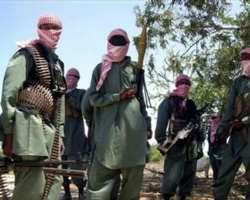FG To Dialogue With Boko Haram By Proxy

ABUJA, August 26, (THEWILL) – The Federal Government is still open to talks with the Boko Haram Islamist sect on mutual ways of ending the spate of bloodletting in the North but such talks will not be the more popularly recognised conventional roundtable.
The focus, instead, will shift to use of backdoor channels that will neither endanger government negotiators nor members of the sect.
Speaking with State House Correspondents on Sunday, Dr. Reuben Abati, the special adviser to the president on media and publicity, revealed that all President Goodluck Jonathan demands from Nigerians is their support while his government dialogues with the sect through multi-level, constructive interventions aimed at addressing the “difficult and multifarious” issue.
“When government says it is already talking to Boko Haram, the form of that dialogue must be properly understood,” Abati said. “I think a lot of people are under the impression that the dialogue involves a situation whereby government officials are sitting on one side, Boko Haram persons are sitting on the other side in an air-conditioned room and there are negotiations across the table. That is not the form of the dialogue.”
He explained that ongoing backroom channels of peaceful talks have the sole objective of understanding the exact grievances of the terrorists and the exact ways to resolve the crisis. But he added that there were other options, asides dialogue.
His words, “You will recall that in one instance, during a presidential media chat, President Jonathan made it clear that the Boko Haram phenomenon in Nigeria is quite a novel phenomenon, and that many of the persons involved in the low-level insurgency are not known; they have not come forward. However, if such persons should come forward, government will grant them a listening ear to know what it is that they are after.
“Again the president is on record as having made it clear that government's approach to checking the Boko Haram insurgency is at many levels. The available option, according to Mr. President, is not solely one of military action or police action; and it is on the basis of this that he had reached out to leaders of political thought in the parts of the country that are affected.
“It is on this basis that President Jonathan held lots of meetings with politicians from northern states, because his position is that this people may not come forward but they are not ghosts; they live in communities.
“They are members of the Nigerian community; there would be persons who know them. There would be leaders in these communities, in these villages, in these towns who may have an idea, and such persons needed to be carried along to assist in addressing the Boko Haram issue. When government adopts this approach, it does not mean government is abdicating its responsibility to ensure that persons who go against the law are sanctioned.”
A third level of intervention, he noted, is the economic and social. “In this regard, President Jonathan has made it clear that many of the efforts being directed towards the affected parts of the country are meant, in fact, to redirect the energies of the youths; and this is the whole point of using the agricultural sector to transform lives, to create wealth, to create a value chain, the end of which is to create jobs and to engage young people more effectively,” he said.
“This government has a robust agricultural transformation programme that has been justly praised by IFAD and the World Bank. The Jonathan administration has been providing wider opportunities for many of the youths in the affected parts of the country to be able to go to school. No other government before now has done as much: get them off the streets, engage them meaningfully, and then you know that the government introduced the YouWin programme and several other pro-people initiatives and policies.”
Abati praised the efforts of the government so far, saying a lot of work is going on.
“Within the last one year and more, you can see that a lot has changed in terms of the knowledge that has been gained about the nature and character of the problem. A lot has been done, and a lot has been achieved in terms of the capacity of the state to deal with the problem,” he said, adding that government would successfully tackle the issue from the various dimensions — political, economic, social, and law enforcement — should the president have the support of Nigerians.
